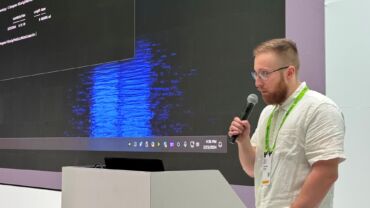Dec 17, 2024 | Inside Thomson Reuters
Thomson Reuters Women, Peace and Security Roundtable at the 79th UN General Assembly

The Thomson Reuters Social Impact Institute, in partnership with the McCain Institute, convened a closed-door roundtable on Women, Peace and Security (WPS) during the 79th United Nations General Assembly, taking place in September 2024.
Women’s equal participation in political and security decision-making is essential to achieve peace and security goals, as well as protecting women’s and girls’ human rights, leading to a better outcome for all.
Women, Peace and Security is a policy framework born from UN Security Council Resolution 1325, adopted in 2000. The resolution acknowledges the disproportionate impacts of conflict on women and girls, while also recognizing the critical—though often overlooked—role women play in security, conflict prevention, management, and peacebuilding efforts. Research consistently shows that when women are involved in decision-making processes related to conflict and security, as well as in the protection of women’s and girls’ rights, positive outcomes are more likely and sustainable. Ensuring women’s equal participation in political and security decision-making is vital to achieving lasting peace and security.
Advancing the WPS agenda is a key pillar in Thomson Reuters’ human rights work. The 2024 roundtable, held under Chatham House rule, brought together global experts and leaders involved in WPS from diverse sectors, building on discussions in the 2023 event. By convening representatives from government, the justice sector, diplomacy, law enforcement and military, Thomson Reuters seeks to build discussion and action on how to drive and support the presence of women in key roles that uphold democracy and the rule of law.
Moderated by Heather C. Fischer, Senior Advisor for Social Impact and Human Rights at Thomson Reuters, and Kristin Abrams, Chief Program Officer at the McCain Institute, the roundtable was organized into three panels: Leading from the Front: 2023-2024 in Review, Efforts to Mobilize Public-Private Sector Engagement, and An Academic Perspective in Emerging Promising and Best Practices. Opening remarks were provided by representatives from UN Women and the Organization for Security and Co-operation in Europe (OSCE), who set the tone by reviewing both the successes and shortcomings of WPS implementation in 2023. They highlighted key challenges, such as the absence of women signatories in any peace agreements in 2023 and a 50% increase in reported instances of sexual violence in conflict zones, as reported by the UN. They called for an intersectional and inclusive approach to Women, Peace and Security, as well as the need for new creative strategies to overcome existing barriers.
Key Takeaways and Recommendations
- Adopting a Multistakeholder Approach
Progress requires leveraging the strengths of multiple sectors, particularly by fostering collaboration between the private and public sectors. Combining resources, expertise, and influence across various fields will enable a more effective and holistic implementation of WPS goals. - Moving from Commitment to Implementation
While there is no shortage of commitments to the WPS agenda, participants underscored the challenges in translating these commitments into action. For example, despite over 100 countries adopting WPS National Action Plans (NAPs), only 31 have developed estimates for implementation costs.[i] There was a call for comprehensive policies that bridge the gap between commitment and execution, backed by the necessary legal frameworks, foreign policy initiatives, and funding to ensure successful implementation. - Emphasizing Bottom-up Approaches
While high-level policy and governmental action are critical, participants emphasized the importance of grassroots movements and community-level initiatives. A bottom-up approach was highlighted as equally essential in addressing gaps in policy and informing the creation of more effective strategies. Localized actions can contribute to closing implementation gaps and ensuring that WPS policies are responsive to the needs of those most affected. - Raising Visibility and Awareness
Despite its importance, WPS remains underrecognized by both the public and policymakers. Participants called for increased efforts to raise visibility and awareness of WPS, both through education campaigns and through branding the initiative in ways that resonate with broader audiences. The lack of awareness undermines the effectiveness of the initiative, and increasing visibility is key to maintaining momentum. - Investing in Younger Generations
The roundtable also emphasized the importance of educating and engaging younger generations to sustain and enhance the WPS agenda. Investing in youth is critical to ensuring the long-term success of WPS efforts and building a new generation of leaders committed to peace and security.
Organizations That Participated in the Roundtable:
AllTru
Center for Women’s Economic Empowerment at the Center for International Private Enterprise (CIPE)
Committed to Good
Government of Pakistan
Jones Day
McCain Institute at Arizona State University
Naval War College
National Organization of Black Law Enforcement (NOBLE)
Organization for Security and Cooperation in Europe (OSCE)
Our Secure Future
Oxford University
PAX sapiens
Philadelphia Foundation
RAND Corporation
The Knoble
Thomson Reuters
Thomson Reuters Special Services
Harvard University
U.S. Department of Homeland Security, Homeland Security Investigations (HSI)
U.S. Department of State, Global Women’s Issues (GWI)
U.S. Senate Select Committee on Intelligence
UN Women
Women in Federal Law Enforcement (WIFLE)
[i] https://oursecurefuture.org/sites/default/files/2023-05/OSF-NAP-InfographicCompanion-April26-2023.pdf


